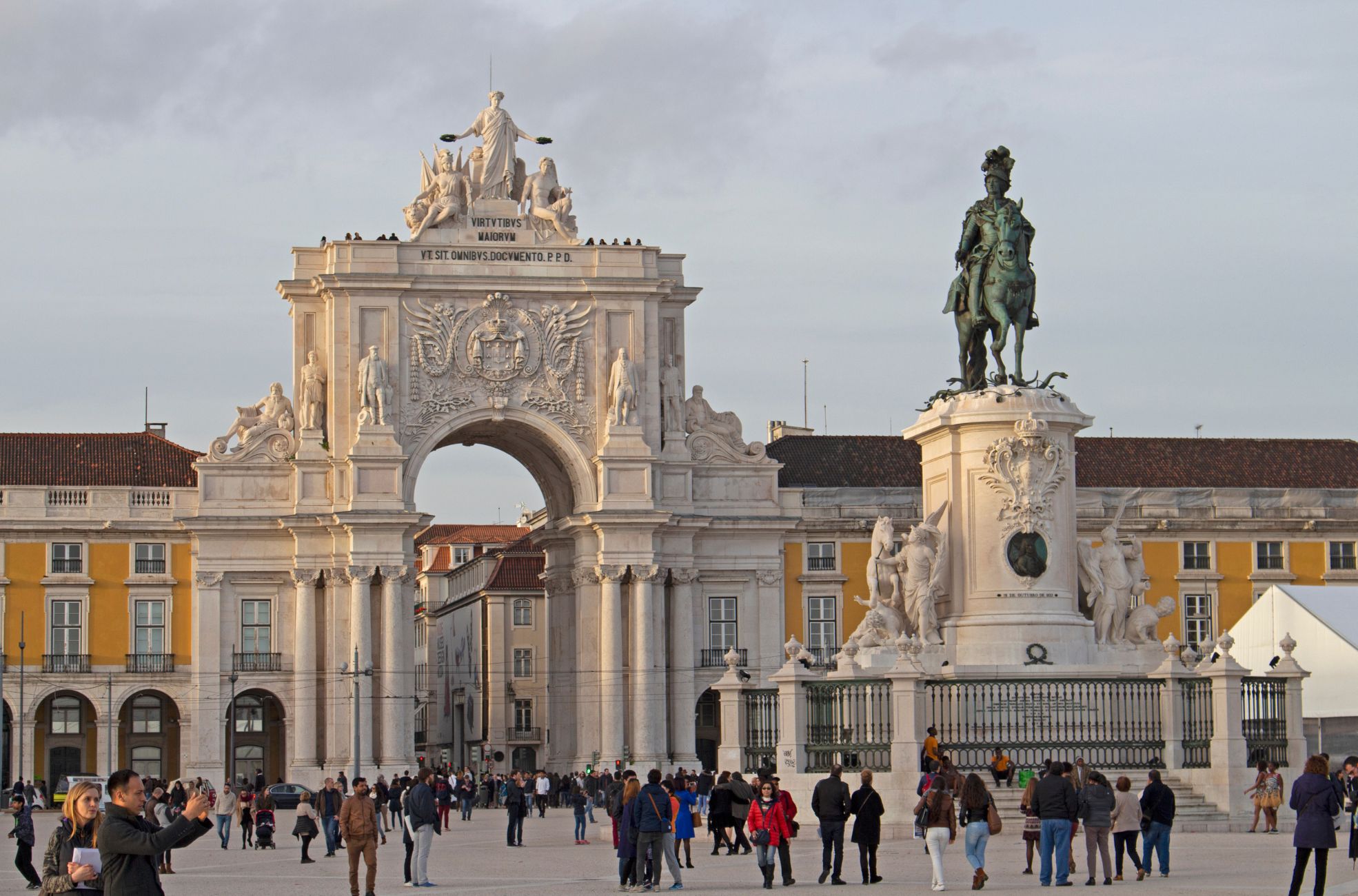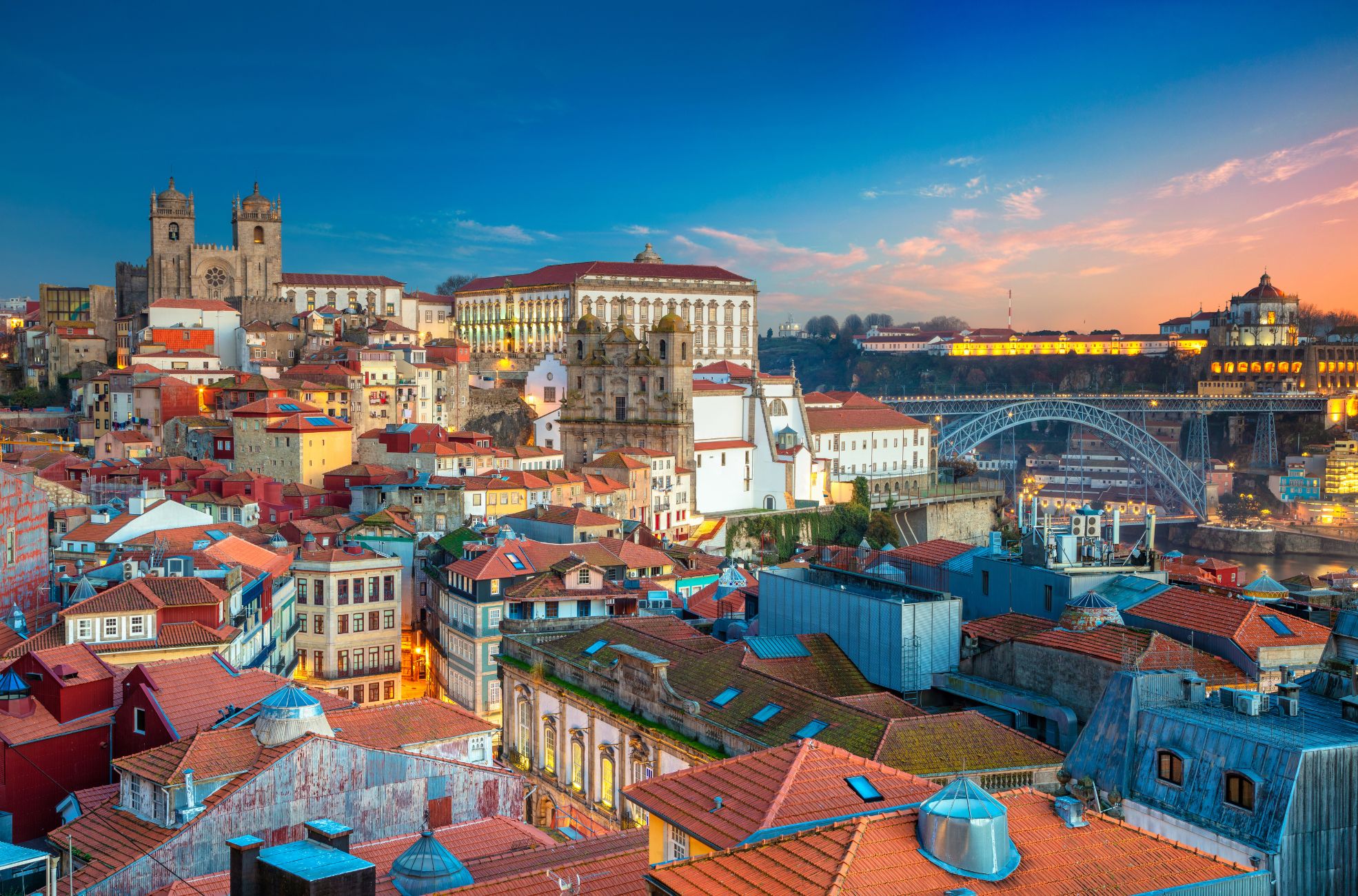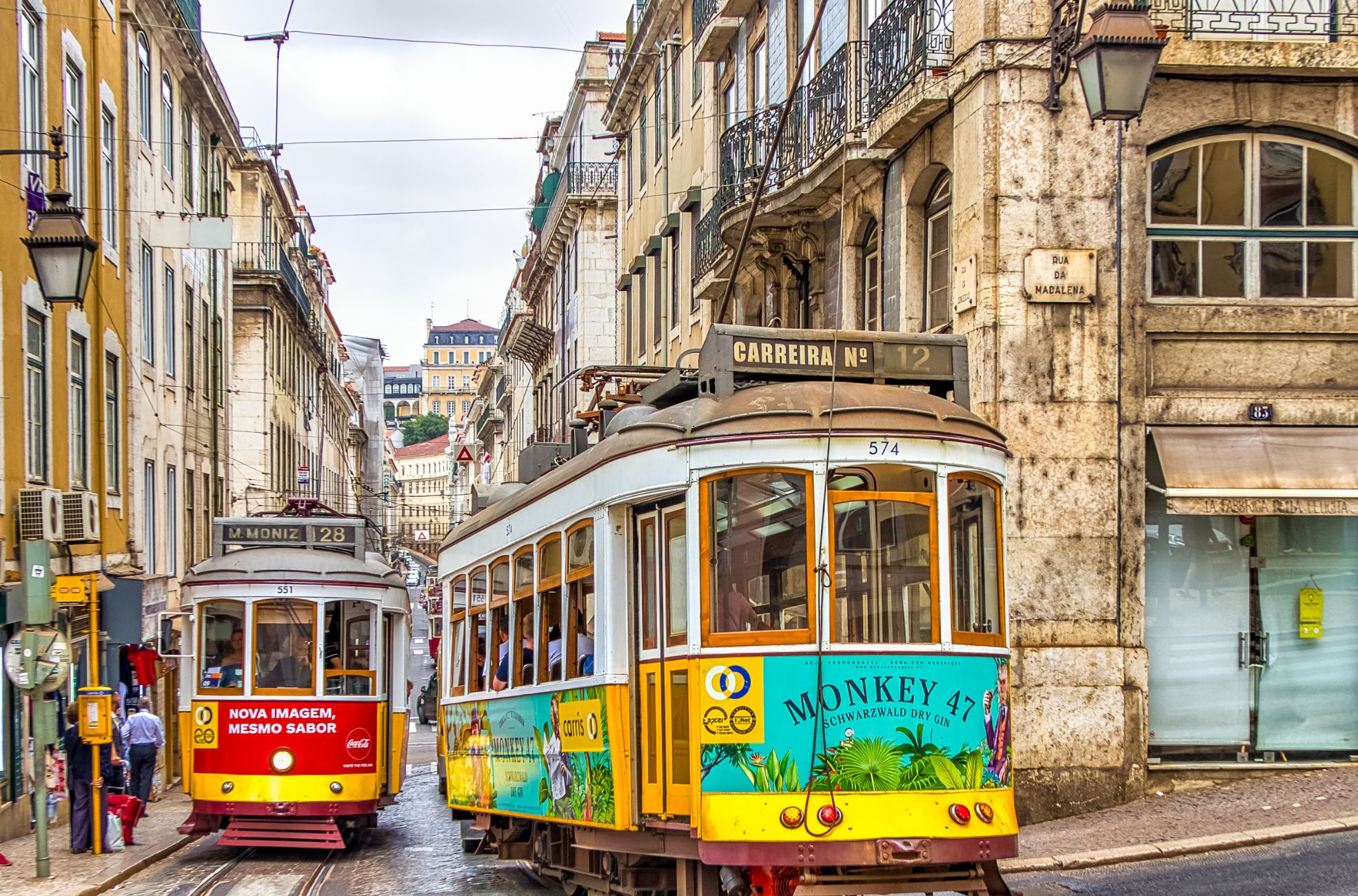Understanding how to get a Portuguese passport can unlock many opportunities, including the freedom to live, work, and travel across the European Union. Whether through ancestry, long-term residence, marriage, or investment, the pathways to obtaining Portuguese citizenship are diverse. Once bestowed, a Portuguese passport is a powerful document, granting visa-free access to over 175 countries and a life rich in cultural experiences, high-quality healthcare, and a favorable cost of living.
We navigate you through the eligibility criteria, the application process, and the distinct advantages that come with Portuguese nationality, ensuring you are well-equipped to embark on your journey towards acquiring a passport from this historically rich and welcoming country.
The Basics of Portuguese Citizenship
Eligibility Criteria for a Portuguese Passport
If you’re looking to become a Portuguese citizen, there are several factors that might make you eligible, such as where you were born, how long you’ve lived in Portugal and your family ties. You could be entitled to citizenship by birth if you were born in Portugal or have Portuguese parents or grandparents. If you don’t have these familial connections, you’ll need to have legally resided in Portugal for at least five years to be considered for naturalization. Being married to a Portuguese citizen can also pave the way to citizenship.
Like parents applying on behalf of their children, you or a representative can kick off the citizenship application. It’s worth noting that nationality can be recognized from birth, making it seem as though you’ve always been a citizen, or it can be acquired later in life, with the effective date being the day your application is approved.
You must submit your application for Portuguese nationality in person at designated locations, such as the Institute of Registration and Notary Affairs in Lisbon or Oporto, Civil Registry Offices, or the Conservatórias dos Registos Centrais. Portuguese consulates abroad are also equipped to take your application. If you’re sending it by mail, it should go to the Conservatória dos Registos Centrais in Lisbon. You’ll need a legal professional, like a lawyer or solicitor, to assist you with online submissions.
The documents you’ll need depend on your specific circumstances, and the cost of applying can vary. But don’t worry; checking the status of your application won’t cost you a dime. Once you’re granted citizenship, it’s yours for life, giving you all the rights of a Portuguese national, including the ability to vote, live, and work anywhere in the European Union.
Key Differences Between Citizenship and Permanent Residency
If you’re planning to settle in Portugal for the long haul, it’s important to know how Portuguese citizenship differs from permanent residency. Permanent residency is up for grabs after five years of legal temporary residence and has its perks over temporary residency. It doesn’t expire but does need to be renewed every five years and comes with minimum stay requirements.
On the other hand, citizenship is a more permanent solution that gives you a European Union passport. This passport opens up a world of opportunities, making moving, working, and retiring across EU member states a breeze. Permanent residents have some benefits but don’t enjoy the same level of access as citizens, even though their status can make it easier to move to another EU country.
Citizenship is meant to last a lifetime. Permanent residency, while also meant for the long term, comes with conditions about how much time you can spend outside of Portugal. To keep this status, you can only be away for up to two consecutive years or a total of 30 months within a three-year period.
Portugal allows dual citizenship, so you can keep your Portuguese nationality even if you become a citizen of another country. And you won’t be asked to give up your original nationality when you become a new Portuguese citizen.
For those of you who aren’t EU nationals, the citizenship application process can take anywhere from a few months to two years. But once you’ve jumped through all the hoops and your citizenship is confirmed, you can apply for that coveted Portuguese passport. It offers visa-free access to over 175 countries and territories. It is usually in your hands within a few months after your citizenship is confirmed.

How To Get Your Portuguese Passport
By Descent of Birth
Eligibility for nationality by descent extends to individuals with a Portuguese ancestor within the second degree of the lineage who have not relinquished their citizenship. Demonstrating proficiency in the Portuguese language is a prerequisite for claiming citizenship by descent. This can be evidenced by a diploma from a Portuguese educational institution, a certificate from an accredited center, or a diploma from a school in a Portuguese-speaking country if that’s where you received your education.
For applicants unable to read or write, the criteria for language proficiency are adapted accordingly.
By Marriage or Civil Partnership
A union of over three years with a Portuguese national can be grounds for applying for nationality. The union must be legally recognized in Portugal. Similarly, a de facto union of the same duration is also considered.
The nationality acquired through marriage is retained even after the union dissolves. Applicants are required to provide various documents, including birth certificates and criminal record certificates. Demonstrating a connection to the Portuguese community is necessary, which can be evidenced by activities that benefit the community or cultural ties, such as property ownership in Portugal. The application incurs a fee of $270. Language proficiency requirements are waived for those married to a Portuguese national for over five years.
Through Naturalization
Naturalization is an avenue for individuals who have established significant ties to Portugal. This process necessitates a demonstrated connection to the Portuguese community and a clean criminal record from the applicant’s country of origin and any other countries where they have resided since turning 16.
All documents must be authenticated and translated into Portuguese. The application fee for naturalization is $270, and applicants can monitor the status of their application online.
Via the Golden Visa Program
The Golden Visa Program is another pathway to citizenship, targeting non-EU nationals who make substantial investments in Portugal. The program accelerates the process of obtaining legal residency and, subsequently, citizenship through various investment avenues, including real estate, job creation, or capital transfers.
The details of the program, such as investment thresholds and options, are periodically updated. Therefore, it is crucial to consult the latest guidelines from Portuguese authorities. The Golden Visa facilitates residency and a route to citizenship and permits free movement within the Schengen Zone.
Step-by-Step Application Process
Necessary Documents
Depending on your situation, you may be required to provide additional evidence, such as a valid Identity Card or Citizen Card. In some cases, documentation demonstrating your connection to a Portuguese national or the local community may also be necessary.
Submitting the Citizenship Application
You have the option to submit your application by mail to the Conservatória dos Registos Centrais in Lisbon.
An online application necessitates using a legal representative with a digital certificate and active digital signature. The application fee is subject to change. You can track the progress of your application online at no cost by using a password obtainable from the IRN website.
Attending the Interview and Language Test
You may be required to participate in an interview and a language test to evaluate your proficiency in Portuguese and your ties to the community. These assessments are crucial for the approval of your citizenship.
The interview also serves as an opportunity for officials to verify the authenticity of your documents and the accuracy of your application details.
Waiting for Approval and Passport Issuance
After completing the necessary steps, you will need to wait for the approval of your citizenship. Subsequently, you can request a PEP. This document facilitates international travel and is recognized by numerous countries. To apply, you must appear in person with a valid identification document.
Minors or individuals with disabilities must have their legal guardians apply on their behalf, although their presence is still required. The standard processing time for a passport is approximately 12 working days, but expedited services can reduce this to 3 to 4 working days.
In urgent situations, a temporary passport valid for up to a year may be issued, requiring additional documentation such as passport-type photos, a completed application form, and evidence of the urgent need. Portuguese passports can be renewed six months before their expiration date, and their validity varies with the holder’s age.
Maintaining up-to-date personal information on your ID or Citizenship card is essential, as this must be reflected in your new passport. While consulates assist with the passport application process, they are not responsible for any documents that may be lost during mailing.

Portuguese Passport Logistics
Portuguese Passport Processing Time
For those applying through the Golden Visa Program, a five-year residency is a prerequisite for citizenship, including demonstrating language proficiency. The language assessment can be taken at any point before finalizing the citizenship process.
Dual Citizenship in Portugal
Portugal’s laws allow citizenship acquisition without relinquishing one’s original nationality. However, verifying whether your country of origin permits dual citizenship is essential. If it does, you can enjoy the benefits of holding two passports. If not, you may face a difficult decision regarding which nationality to retain.
Portuguese Passport Renewal
When it’s time to renew your passport, you can initiate the process up to six months before its expiration. If your passport has already expired, a new application is necessary. The renewal fee is $108; additional charges may apply if the passport is lost or stolen.
To renew, you must have a valid ID or Citizen Card and be registered with a Portuguese Consulate. If you need to register, this can be addressed during renewal. If your ID or Citizen Card is invalid or was issued in Macau, you’ll need to visit the Consulate for document signing and fingerprinting.
The issuance of a new passport can take from 2 to 3 weeks if you have a valid ID or Citizenship card. The wait could extend from 6 weeks to 2 months if an ID card is also required.
Passport validity varies by age: 2 years for children aged 1 to 2, 3 years for ages 2 to 5, and 5 years for those aged five and older.
For minors, both parents with valid Portuguese IDs are typically necessary during the application. If the parents are married and the marriage is registered in Portugal, the presence of one parent suffices. In cases of divorce, the custodial parent must provide custody documentation.
Updates to your name or marital status must be reflected in your ID or Citizenship card to appear in the new passport.
When mailing documents, an additional consular fee of $11.00 is required for courier delivery. The Consulate is not liable for documents lost in transit. To ensure a smooth process, contacting the Consulate to schedule an appointment and confirm the requirements and fees is advisable.

Benefits Of A Portuguese Passport
Travel, Live, Work, and Study in the EU
A Portuguese passport grants the holder the privilege to travel, reside, work, or retire throughout the EU, as well as in the EEA and Switzerland, without additional visas or permits. As part of the Schengen Area, which encompasses 26 European countries, Portuguese passport holders benefit from the ability to cross borders within this zone seamlessly. Additionally, they have the right to vote in national and European elections, influencing the region’s governance.
Amazing Quality Of Life
Portugal’s allure includes a high standard of living, with a focus on safety, a temperate climate, and a wealth of cultural experiences. Ranking 13th in the Global Citizen Solutions’ Quality of Life Index, Portugal offers a lifestyle emphasizing a harmonious balance between professional commitments and leisure activities.
Access To Quality Healthcare and Schooling
The Portuguese healthcare system, the SNS, is ranked 25th in the Healthcare Index by Numbeo and provides comprehensive coverage funded by taxes and social security. While nominal fees are charged for medical services, certain demographics, such as children and seniors, are exempt from these charges. The healthcare landscape is augmented by private insurance, chosen by a portion of the population.
The education system in Portugal is another advantage, with public schooling at no cost and higher education institutions that are more affordable than many of their European counterparts.
Low Cost Of Living
The cost of living in Portugal is among the most affordable in Western Europe, with consumer prices, including rent, being substantially lower than in the US. The affordability is reflected in everyday expenses, from dining to groceries, with fresh food items that are particularly economical. The average utility costs for a standard apartment are about $121 monthly.
For American retirees, the combination of a lower cost of living and a superior standard of living positions Portugal as a prime retirement locale. Even with a limited budget, residing in the more economical regions of Portugal is feasible, with some estimates suggesting that a monthly budget of $1000 could suffice.
Your Gateway to a Global Lifestyle
Securing a Portuguese passport is more than a mere administrative step — it’s an investment in a global, mobile lifestyle. The allure of belonging to a nation steeped in history, culture, and the promise of adventure is now within your grasp. By following the paths in this guide, you’re embarking on a journey that redefines boundaries and expands horizons.
Whether through descent, naturalization, or investment, the process may demand patience and meticulous attention to detail, but the rewards are immeasurable. Embrace the opportunity to blend the vibrant Portuguese heritage with the freedom to roam the European tapestry and beyond.
With each step, you’re not just acquiring a travel document but unlocking a lifetime of possibilities. So, gather your documents, polish up your Portuguese, and set sail for your envisioned future. Boa sorte!





